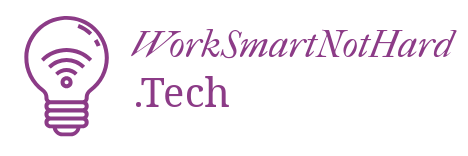Managing time well is crucial for entrepreneurs who juggle many tasks and responsibilities. Good time management helps you stay organized, meet deadlines, and achieve your goals. By using simple strategies, you can make the most of every minute and keep your business on track. Here are five key takeaways to help you master time management and boost your productivity.
Key Takeaways
- Set clear goals to guide your daily tasks and priorities.
- Use tools like to-do lists to break down tasks into smaller steps.
- Identify and eliminate distractions to maintain focus.
- Learn to delegate tasks to team members to free up your time.
- Keep a balance between work and personal life for better overall well-being.
Setting Clear Goals and Prioritizing Tasks
Setting clear goals is essential for effective time management. By defining your objectives, you can focus on what truly matters. Here are some strategies to help you set and prioritize your tasks:
Defining Short-Term and Long-Term Objectives
- Short-Term Goals: These are tasks you want to achieve in the near future, like completing a project or meeting a deadline.
- Long-Term Goals: These involve broader objectives, such as growing your business or expanding your customer base.
- SMART Goals: Make sure your goals are Specific, Measurable, Achievable, Relevant, and Time-bound.
Breaking Down Tasks into Manageable Steps
- Chunking: Divide larger tasks into smaller, more manageable steps to avoid feeling overwhelmed.
- Action Items: Create a list of specific actions needed to achieve each goal.
- Timeline: Set deadlines for each step to keep yourself accountable.
Utilizing To-Do Lists and Project Management Tools
- To-Do Lists: Write down tasks daily to keep track of what needs to be done.
- Project Management Tools: Use software like Trello or Asana to organize tasks and collaborate with your team.
- Prioritization Matrix: Consider using a matrix to categorize tasks by urgency and importance, helping you focus on high-priority items.
Remember, not all tasks are equal. Focusing on high-impact activities can significantly boost your productivity and drive your business forward. Work smart, not hard.
Overcoming Common Time Management Challenges

Identifying Major Time Wasters
Recognizing what steals your time is the first step to managing it better. Here are some common time wasters:
- Unnecessary meetings: Limit meetings to only those that are essential.
- Social media distractions: Set specific times to check social media.
- Multitasking: Focus on one task at a time to improve efficiency.
Strategies to Minimize Interruptions
Interruptions can derail your focus. Here are some strategies to help:
- Set specific work hours: Communicate your availability to others.
- Create a dedicated workspace: A quiet area can help reduce distractions.
- Use technology wisely: Consider tech-free time zones to enhance focus.
Balancing Multiple Roles Effectively
As an entrepreneur, you wear many hats. Here’s how to manage them:
- Prioritize tasks: Use a to-do list to focus on what’s most important.
- Delegate when possible: Don’t hesitate to share responsibilities with your team.
- Schedule breaks: Regular breaks can help maintain your energy and focus.
Managing your time effectively is not just about doing more; it’s about doing what matters most. Work smart, not hard to achieve your goals.
The Importance of Work-Life Balance

Setting Boundaries Between Work and Personal Life
Creating clear boundaries between work and personal time is essential for entrepreneurs. Establishing these limits helps prevent burnout and ensures that you have time to recharge. Here are some tips to set boundaries:
- Define specific work hours.
- Communicate your availability to your team.
- Schedule personal time just like you would for meetings.
Allocating Time for Self-Care and Hobbies
Taking time for yourself is crucial. Engaging in hobbies and self-care activities can boost your creativity and productivity. Consider:
- Setting aside time each week for activities you enjoy.
- Practicing mindfulness or meditation.
- Ensuring you have regular breaks during your workday.
Maintaining Healthy Relationships
Strong relationships are vital for a balanced life. Make sure to:
- Spend quality time with family and friends.
- Communicate openly about your work commitments.
- Prioritize social activities to maintain connections.
Remember, prioritizing your own well-being and taking time for yourself can benefit you, your team, and your business in the long run.
By focusing on work-life balance, you can enhance your overall productivity and satisfaction in both your personal and professional life.
Effective Delegation Techniques
Identifying Tasks to Delegate
Delegation is a key skill for entrepreneurs. Here are some tasks you might consider delegating:
- Routine administrative tasks: These can include scheduling meetings or managing emails.
- Specialized tasks: If someone on your team has expertise in a certain area, let them handle it.
- Research and data analysis: This can free up your time for more strategic decisions.
Choosing the Right Team Members
When you delegate, it’s important to choose the right person for the job. Consider the following:
- Skills and experience: Match the task with someone who has the right skills.
- Interest and motivation: Choose someone who is interested in the task to ensure better results.
- Availability: Make sure they have the time to take on the new responsibility.
Monitoring and Reviewing Delegated Tasks
Once you’ve delegated tasks, keep track of progress. Here’s how:
- Set clear expectations: Make sure everyone knows what is expected of them.
- Check-in regularly: Schedule brief updates to see how things are going.
- Provide feedback: Offer constructive feedback to help your team improve.
Effective delegation not only saves time but also empowers your team. By trusting others with responsibilities, you can focus on high-impact activities that drive your business forward. Remember, delegation is not just about offloading work; it’s about building a strong team that can contribute to your vision.
By mastering these delegation techniques, you can enhance your productivity and create a more efficient work environment. Utilizing your team’s strengths will lead to better outcomes and a more balanced workload for you as an entrepreneur.
Utilizing Technology for Better Time Management
In today’s fast-paced world, technology can be your best friend when it comes to managing time effectively. Here are some key tools and strategies:
Time Tracking Tools and Apps
- Track your time: Use apps like Toggl or Clockify to see where your time goes.
- Identify patterns: Analyze your time usage to find areas for improvement.
- Set goals: Establish time goals for tasks to stay focused.
Automating Repetitive Tasks
- Use automation tools: Tools like Zapier can connect different apps to save time.
- Schedule social media posts: Use platforms like Buffer to plan your posts in advance.
- Create templates: For emails or documents to speed up your workflow.
Implementing Project Management Software
| Tool Name | Features | Best For |
|---|---|---|
| Trello | Visual task management | Small teams |
| Asana | Task assignments and deadlines | Project tracking |
| Monday.com | Customizable workflows | Larger teams |
Using project management software helps you break down tasks, assign them to team members, and track progress. This organized approach can boost your team’s productivity and keep everyone aligned.
By integrating technology into your daily routine, you can create a more organized and efficient work environment. This not only saves time but also reduces stress, allowing you to focus on what truly matters.
Embrace these tools and strategies to work smart, not hard. They can help you maximize your productivity and achieve your goals more effectively.
Advanced Time Management Strategies
The Pomodoro Technique
The Pomodoro Technique is a popular method that helps you manage your time effectively. It involves working for 25 minutes, then taking a 5-minute break. This cycle is repeated, and after four cycles, you take a longer break of 15-30 minutes. This technique helps maintain focus and prevents burnout.
Time Blocking Methods
Time blocking is a strategy where you allocate specific blocks of time for different tasks. Here’s how to implement it:
- Identify your tasks for the day.
- Estimate the time each task will take.
- Schedule blocks in your calendar for each task.
This method helps you stay organized and ensures you dedicate time to high-priority tasks.
Analyzing Peak Productivity Hours
Understanding when you are most productive can greatly enhance your efficiency. Here’s a simple table to help you track your productivity:
| Day | Morning (8 AM – 12 PM) | Afternoon (1 PM – 5 PM) | Evening (6 PM – 9 PM) |
|---|---|---|---|
| Monday | High | Medium | Low |
| Tuesday | Medium | High | Medium |
| Wednesday | Low | Medium | High |
By analyzing this data, you can schedule your most important tasks during your peak hours, maximizing your productivity.
Remember, effective time management is about working smart, not hard. Adjust your strategies as needed to find what works best for you!
Building Consistent and Productive Habits
Setting Daily and Weekly Plans
Creating a structured plan is essential for staying on track. Here are some steps to help you:
- Identify your goals for the week.
- Break down these goals into daily tasks.
- Review your progress at the end of each day.
Reviewing and Adjusting Strategies Regularly
It’s important to check how well your plans are working. Consider:
- What tasks took longer than expected?
- Were there any distractions that could be minimized?
- How can you improve your routine for next time?
Staying Accountable and Disciplined
Accountability can boost your productivity. Here are some tips:
- Share your goals with a friend or mentor.
- Set reminders for important tasks.
- Celebrate small wins to keep yourself motivated.
Building habits takes time and effort, but consistency is key. By following a routine, you can enhance your productivity and achieve your goals more effectively. Remember, daily routines can make a huge difference to how healthy, happy, and productive we are. Discover the key pieces to these 7 routines & make them your own!
The Role of Flexibility in Time Management
Effective time management is not a strict, one-size-fits-all approach. Flexibility is essential for adapting to different situations and personal work styles. Here are some key points to consider:
Adapting to Changing Circumstances
- Be open to adjusting your plans when unexpected tasks arise.
- Regularly assess your current strategies to see if they still work for you.
- Embrace change as a chance to learn and grow.
Incorporating Buffer Time
- Schedule extra time between tasks to handle unforeseen events.
- Use this buffer to recharge or catch up on tasks that took longer than expected.
- This can help reduce stress and improve overall productivity.
Learning from Trial and Error
- Don’t be afraid to try new methods and see what fits best.
- If a strategy isn’t working, analyze why and make necessary changes.
- Remember, every challenge is a learning opportunity.
Flexibility in time management allows you to take control of your schedule, enhancing productivity and helping you achieve your goals more effectively.
By embracing flexibility, you can create a personalized time management strategy that aligns with your unique needs and responsibilities. This approach not only boosts your efficiency but also helps you maintain a balanced work-life schedule, ultimately leading to greater success in your entrepreneurial journey.
Maximizing Productivity Through Focus
Minimizing Distractions
To boost your productivity, it’s essential to minimize distractions. Here are some effective strategies:
- Turn off notifications on your devices.
- Silence your phone during work hours.
- Create a quiet workspace free from interruptions.
By following these steps, you can create an environment that promotes concentration and efficiency.
Creating a Focused Work Environment
A focused work environment is crucial for productivity. Consider these tips:
- Organize your workspace to reduce clutter.
- Use noise-canceling headphones if needed.
- Set specific times for focused work without interruptions.
These practices help you stay on task and enhance your output.
Implementing Tech-Free Time Zones
In our tech-driven world, it’s vital to have tech-free time zones. This means:
- Designating certain hours where you avoid screens.
- Engaging in activities like reading or exercising during these times.
- Encouraging team members to do the same for better collaboration.
By creating tech-free zones, you can recharge and return to work with renewed focus.
Regular breaks can help maintain high levels of concentration. Taking short breaks allows your brain to relax and reset, improving your focus when you return to tasks.
Incorporating these strategies into your daily routine can significantly enhance your productivity and help you achieve your goals more effectively. Remember, the key is to stay focused and minimize distractions to maximize your output.
The Impact of Consistency on Success
Prioritizing High-Impact Tasks
Consistency is key to achieving success as an entrepreneur. By focusing on high-impact tasks, you can make significant progress over time. Here are some steps to help you prioritize:
- Identify the 20% of tasks that yield 80% of your results.
- Allocate more time to these tasks.
- Regularly review and adjust your priorities.
Creating Systems and Processes
Establishing clear systems can help you stay on track. Consider the following:
- Set specific work hours.
- Use to-do lists to manage daily tasks.
- Schedule regular time for strategic planning.
Maintaining Steady Progress
To build momentum, it’s essential to keep moving forward. Here’s how:
- Break down larger goals into smaller, manageable steps.
- Celebrate small wins to stay motivated.
- Keep a journal to track your progress and reflect on your journey.
Consistency lays a strong foundation for growth. It attracts new customers and retains existing ones, which is essential for sustainable business expansion.
By implementing these strategies, you can master your time management and see the positive impact of consistency on your success.
Learning to Say No
Valuing Your Time and Energy
Learning to say no is a crucial skill for entrepreneurs. It’s about understanding that your time and energy are limited resources. When you say no to tasks that don’t align with your goals, you’re making room for what truly matters. This means being selective about the commitments you take on.
Setting Realistic Expectations
Here are some tips to help you set boundaries:
- Identify your priorities: Know what tasks are most important for your business.
- Evaluate opportunities: Before accepting new tasks, ask yourself if they align with your goals.
- Practice saying no: Start with small commitments to build your confidence.
Communicating Boundaries Clearly
When you decide to say no, it’s important to communicate your decision clearly. Here’s how:
- Be direct: Politely decline without over-explaining.
- Express gratitude: Thank the person for the opportunity.
- Offer alternatives: If possible, suggest someone else who might help.
Learning to say no is not just about rejecting tasks; it’s about making space for your most important goals. By focusing on what truly matters, you can drive your business towards greater success.
Conclusion
Mastering the art of saying no can lead to better time management and increased productivity. Remember, every time you say no to something that doesn’t serve your goals, you’re saying yes to your own success!
Continuous Learning and Growth
Investing in Professional Development
To stay ahead in business, elevating your business through lifelong learning is essential. Here are some ways to invest in your growth:
- Attend workshops and seminars.
- Enroll in online courses relevant to your field.
- Read books and articles about industry trends.
Staying Updated with Industry Trends
Keeping up with changes in your industry can help you adapt and thrive. Consider these strategies:
- Subscribe to industry newsletters.
- Follow thought leaders on social media.
- Join professional organizations for networking.
Allocating Time for Learning and Innovation
Set aside specific times in your schedule for learning. This could include:
- Dedicating an hour each week to read.
- Setting monthly goals for new skills to acquire.
- Creating a learning group with peers to share insights.
Continuous learning is not merely a strategy but a necessity for sustained success and growth. As markets evolve, so must we.
Final Thoughts on Time Management for Entrepreneurs
In conclusion, mastering time management is essential for every entrepreneur. By setting clear goals, prioritizing tasks, and learning to delegate, you can make the most of your time. Remember, it’s not just about getting more done; it’s about doing the right things that help your business grow. Embrace flexibility and be open to adjusting your strategies as needed. With these skills, you can balance your work and personal life better, leading to greater success and satisfaction in your entrepreneurial journey.
Frequently Asked Questions
What are some important time management tips for entrepreneurs?
Entrepreneurs should set clear goals, prioritize tasks, and use to-do lists to stay organized. It’s also helpful to delegate tasks and use technology to manage time better.
How can I overcome distractions while working?
To reduce distractions, create a focused work environment, limit interruptions, and set specific times to check emails and messages.
Why is work-life balance important for entrepreneurs?
Work-life balance helps prevent burnout and keeps you motivated. It allows you to enjoy personal time and maintain healthy relationships.
What is the Pomodoro Technique?
The Pomodoro Technique involves working for 25 minutes and then taking a 5-minute break. This helps keep you focused and refreshed.
How can I effectively delegate tasks?
Identify tasks that others can do, choose team members who have the right skills, and regularly check in on their progress.
What tools can help with time management?
There are many tools available, like time tracking apps, project management software, and automation tools that can save you time.
How can I build productive habits?
Set daily and weekly plans, review your progress, and stay disciplined. Consistency is key to developing good habits.
What should I do if I feel overwhelmed with tasks?
Take a step back, prioritize your tasks, and break them into smaller steps. Learn to say no to less important tasks to focus on what matters most.



